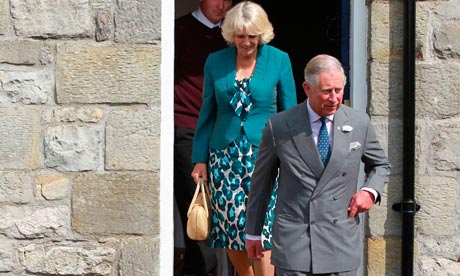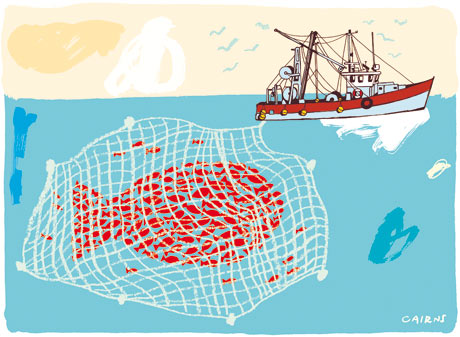Private secretary to defend tax status of estate from which prince received record personal income of £19m last year

The Prince of Wales's most senior official is to defend the tax status of his £763m Duchy of Cornwall hereditary estate before the Commons public accounts committee, which has already scrutinised the tax affairs of Starbucks, Google and Amazon.
As Clarence House revealed Prince Charles received a record private income of £19m from the duchy last year – a 4.1% increase on the previous year – his principal private secretary, William Nye, said: "Naturally we are happy to appear before the PAC if they would like to see us."
Nye and the estate's finance director, Keith Willis, have been summoned before the committee on 15 July. MPs on the committee have questioned whether the tax status of the hereditary duchy – which saw its capital value increase by 4.9% last year – "remains defensible". It pays no corporation or capital gains tax.
The duchy, which has a portfolio of land, property and investments and published its annual accounts late on Thursday evening, provides income for the heir to the throne.
Nye stressed that the prince "voluntarily" paid income tax on the surplus of his duchy income after official expenses had been deducted. His tax bill fell sightly last year by £70,000 to £4.26m, a drop of 1.5%.
But it is not income tax that interests the PAC who have noted public concern over the duchy's exemption from corporation and capital gains tax. Any change to the duchy's tax status threatens to reduce the annual surplus paid to the prince for his private and official spending.
Charles's annual accounts show that he spent more than half – £10,952,000 – on official expenditure. He is also believed to have spent at least £1m on official activities carried out by the Duke and Duchess of Cambridge and Prince Harry, including covering their office staff costs, though their official travel, security and refurbishment of the Cambridges' Kensington Palace apartment are met by the taxpayer. A breakdown of the young royals' costs was not revealed, but they are said to be "a significant element" of the £2,088,000 Charles paid out on "other expenditure."
His funding from the British taxpayer fell by 47% from £2.1m to £1.1m, but officials admitted this was due in large part to his travel costs visiting the realms of Australia, Canada and New Zealand where the Queen is also head of state, being met by the host countries.
Charles's expenditure includes the costs of 125.4 full-time official positions plus eight personal staff, including secretaries, chefs and valets, and 15 estate, farm, garden and stable staff. He also funds the 10.5 full-time staff employed for the Duke and Duchess of Cambridge and Prince Harry.
At a briefing on the prince's finances, Nye said that "special rules" applied to the duchy. "The Prince of Wales gets the income from the duchy but he doesn't have access to the capital. That has always been the case," he said.
"The duchy is a unique organisation. And, because it is unique, it isn't completely straightforward. We can explain it but it takes a little bit of explanation and we're happy to provide that explanation."
The duchy, founded in 1337, was not a corporation, so did not pay corporation tax. And to pay capital gains tax would undermine the reason behind it being set up, he said.
"The whole point about the duchy is that it is set up specifically, and indeed is required by law, to maintain its capital, to roll over and maintain its capital and to invest in the future so as to generate income for the future.
"Indeed, the only reason why accounts are put before parliament in the first place is because there is an obligation to the treasury to produce those accounts to demonstrate that the treasury is doing its job of checking that the duchy is maintaining its capital . So whatever the duchy sells, any asset, it has to put the money back in to maintain the capital.
"Of course, parliament could legislate to require the duchy to pay capital gains tax if they wish to, but that would completely undermine the point of why it evolved in the first place."
